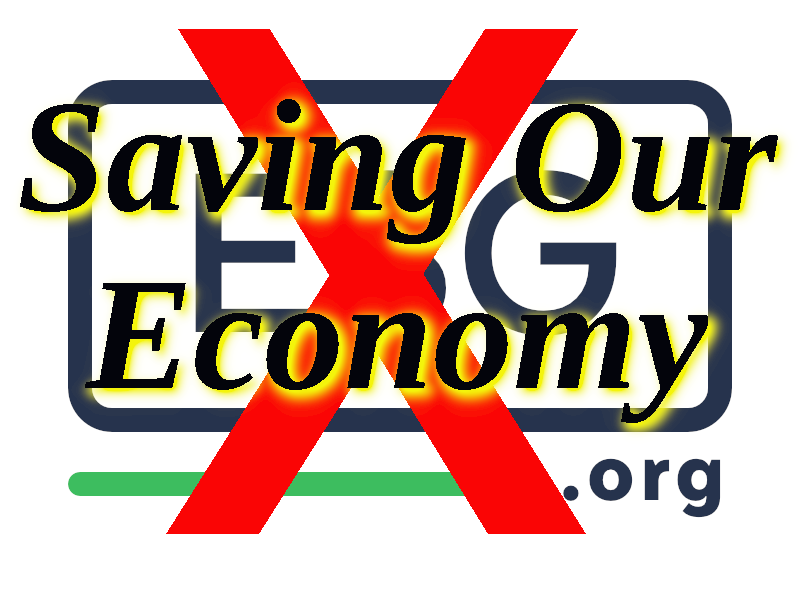Environmental, Social, and Governance (ESG) criteria have become a significant focus for investors, companies, and policymakers worldwide. ESG advocates claim that these standards lead to more sustainable and responsible business practices. However, critics argue that ESG poses a threat to economic welfare by distorting market dynamics, limiting corporate growth, and prioritizing political agendas over profitability. To preserve economic welfare, it is essential to critically examine and challenge the ESG movement.
The Rise of ESG
ESG has evolved from a set of voluntary guidelines to a powerful force shaping global markets. The movement began in 2004 under the United Nations’ initiative “Who Cares Wins,” aiming to integrate ESG issues into financial decision-making. By 2021, ESG funds accounted for 10% of worldwide fund assets, representing over $40 trillion in managed assets【7†source】【8†source】. Investment firms like BlackRock enforce ESG standards, pushing companies to report on environmental and social metrics in addition to financial performance.
Economic Implications of ESG
While ESG proponents argue that aligning with these standards leads to long-term profitability, critics assert that the emphasis on non-financial metrics can undermine the fundamental principles of capitalism. According to the Foundation for Economic Education (FEE), ESG and stakeholder capitalism can displace consumer sovereignty, which is the cornerstone of a free-market economy【7†source】【8†source】. In traditional capitalism, consumers dictate market outcomes through their buying decisions, rewarding companies that best satisfy their needs. ESG, however, shifts the focus from consumer demands to satisfying political and social agendas.

Chart 1: ESG Assets Under Management
This chart shows the growth of ESG assets under management from 2015 to 2021, highlighting the rapid adoption of ESG principles in the financial sector.
Year | ESG Assets (Trillions USD)
2015 | 8.1
2016 | 8.7
2017 | 11.6
2018 | 12.0
2019 | 13.9
2020 | 35.3
2021 | 40.5Risks to Economic Welfare
- Market Distortion: ESG standards can distort market dynamics by prioritizing politically-driven goals over profit maximization. This shift can lead to inefficiencies and reduced economic growth.
- Increased Costs: Compliance with ESG standards often involves significant costs for companies, including investments in green technologies, diversity initiatives, and increased reporting requirements. These costs can be burdensome, particularly for small and medium-sized enterprises, potentially stifling innovation and competitiveness【7†source】【8†source】.
- Reduced Shareholder Value: By focusing on stakeholder interests rather than shareholder returns, companies may sacrifice profitability and long-term growth. Critics like Warren Buffett argue that ESG spending can be a misuse of shareholder funds, diverting resources away from productive investments【8†source】.
Chart 2: Cost Implications of ESG Compliance
This hypothetical chart illustrates the potential costs associated with ESG compliance for companies, broken down by category.
Cost Category | Average Annual Cost (Millions USD)
Green Technologies | 5.0
Diversity Initiatives | 2.5
Reporting Requirements | 1.8
Total | 9.3The Path Forward
To safeguard economic welfare, it is crucial to critically assess the role of ESG in the global economy. This includes:
- Promoting Transparency: Companies should be transparent about the costs and benefits of ESG initiatives, allowing investors and consumers to make informed decisions.
- Fostering Innovation: Encourage innovation and market-based solutions to address environmental and social challenges without imposing burdensome regulations and mandates.
- Respecting Shareholder Primacy: Reaffirm the importance of shareholder value as a primary driver of corporate success and economic growth【7†source】【8†source】.
Conclusion
The ESG movement, while well-intentioned, poses significant risks to economic welfare by distorting market dynamics and prioritizing political agendas over profitability. By challenging the dominance of ESG and advocating for transparency, innovation, and shareholder primacy, we can preserve the principles of capitalism that drive economic growth and prosperity.
For further reading, you can access the full articles from FEE and Ballotpedia.


